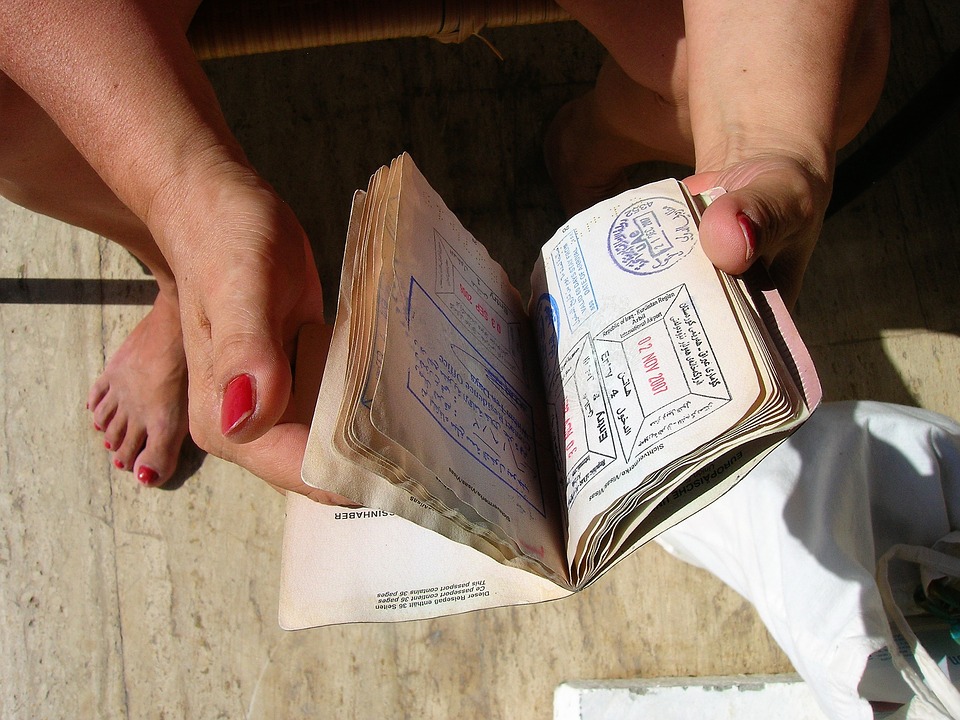Conditional Permanent Residency for Spouses Revoked
Canadian Government Eliminates the Conditional Permanent Residence Requirement for Spouses and Partners Who Were Sponsored To Canada
On April 28, 2017, the Canadian government announced that it abolished a condition for permanent residency that required some sponsored spouses and partners to remain in a relationship with their sponsors for a period of at least two years. The change was first announced in late 2016 before coming into effect in April 2017.
Conditional permanent residence was introduced by the former Conservative government in 2012 with a proposed objective of combatting marriage fraud. The condition applied to individuals who did not have children with their sponsors and carried the penalty of losing permanent resident status if the two-year requirement was not met.
There was, however, significant concern following the condition’s enactment that conditional permanent residence did not in fact contribute to deterring fraudulent marriages. Rather, it was feared that the condition had a detrimental effect on vulnerable spouses, causing many to remain in abusive relationship with their sponsors for fear of losing their status.
The current government’s move to eliminate the condition altogether is meant to address these concerns. According to the Minister of Immigration, Refugees and Citizenship, Ahmed Hussen, the change is meant to prevent a bad situation from getting worse by forcing those in abusive situations to remain with their abusers for the sake of status. The change is also meant to further reinforce Canada’s commitment to combatting gender-based violence and advancing gender-equality.
This newly enacted change in spousal sponsorship is undoubtedly a right step on the government’s part towards recognizing the realities of marriage and other committed relationships. Domestic abuse and gender-based violence remain serious societal problems and government policy must unquestionably be cognizant of the fact. Policy makers must necessarily account for any potentially detrimental impact a condition or rule might have on vulnerable groups, and conditions that only work to exacerbate the issue can reasonably have no place in Canada’s immigration system today.
Express Entry Recognizes French Skills and Family
Points System Updated to Recognize Language Skills and Benefits of Permanent Residency Amongst Families
Canada’s Express Entry program shortens application wait times for skilled candidates pursuing permanent resident status. The program’s Comprehensive Ranking System (CRS) awards points to applicants based on their skills, education, language, and experience. High-ranking applicants have a greater likelihood that they’ll receive an Invitation to Apply (ITA) for permanent resident status.
Express Entry awards those who will integrate, participate, and excel in Canadian society, both socially and economically. And while it can be a challenge to navigate the program, applicants can always get help from an immigration lawyer.
These CRS changes will award more points to those deemed more likely to contribute and integrate into Canadian society. Canada’s Minister of Immigration, Refugees and Citizenship, Ahmed Hussen, detailed the changes (as reported in a CTV News article), which came into effect on June 6, 2017. They include:
- Awarding 15 points to applicants with a sibling in Canada, who is a 18 years old or older, and either a Canadian citizen or permanent resident; and,
- Awarding up to 30 additional points to applicants with strong French-language skills—determined by a French-language test.
Siblings in Canada
With this amendment to the CRS, Canada recognizes the importance of family reunification amongst newcomers, especially between siblings. Immigration, Refugees and Citizenship Canada (IRCC) found that newcomers with siblings in Canada are better able to integrate into Canadian society.
When starting a new life in a new country, social, emotional, and economic support from a family helps new residents form social networks, find jobs, learn new languages and customs, and adapt to their new homes.
French Language Skills
Additional points for strong French-language skills are meant to encourage French-speaking newcomers to contribute to the growth of Francophone minority communities. Since Canada is an officially bilingual country, French speakers are welcome and encouraged to participate in Canadian society throughout the country.
These changes are an example of how Canadian immigration is adapting to meet the needs of Canadian society. While Canadian society certainly benefits from skilled immigrants in the workforce, the quality of life and support of newcomers is just as important.
If you or a family member would like to become a candidate in the Express Entry program, contact a Canadian immigration lawyer for help with the process.
New Rules Pose Problems for Dual Citizens
Changes to Entry Rules are Causing Problems for Dual Citizens Travelling to Canada
If you are a dual citizen planning to fly to Canada, make sure you have a valid Canadian passport. In November 2016, the Government of Canada made it a requirement for anyone with a passport from a country other than Canada to have either a visa or an electronic travel authorization before boarding an airplane that will land in Canada. As citizens of Canada cannot get a visa or an electronic travel authorization, this effectively requires dual citizens to hold a valid Canadian passport to travel to or through Canada.
These changes have caused problems for travellers unaware of them, and a backlog in Canadian passport applications around the globe. Even dual citizens living in Canada must have a valid Canadian passport to get home, so it’s very important to review travel requirements before leaving the country. For more information on Canadian citizenship or passport laws, contact a citizenship lawyer.
According to a recent CBC News article, the changes to passport requirements is causing uncertainty for many dual citizens who plan to travel to Canada. The changes have led to a backlog and lengthy delays in Canadian passport applications in Australia, France, Germany, and the United Kingdom. Delays could interrupt travel plans and leave people stranded if they cannot obtain an alternative travel document, such as a temporary passport, an Emergency Travel Document, or a temporary special authorization. Some of these alternative documents are difficult to come by, though, and are only issued under stringent conditions.
Temporary Special Authorization
The Canadian government established a special authorization program for dual citizens who were not aware of the recent changes to Canada’s entry rules prior to leaving the country. They can apply for an exemption, which allows them to board their flight to Canada. This applies if the flight is scheduled within 10 days of the application. In addition, it only applies if your other citizenship is from a visa-exempt country.
If approved, authorization is valid for four days after the travel date. There is no guarantee that special authorization will be granted.
Electronic Verification Database
To get approval for the special authorization, the applicant’s Canadian citizenship must be verified using the IRCC’s electronic database. This electronic system started November 10, 2016, and is used to verify that Canadian citizens have the appropriate travel documents. Accepted travel documents include:
- A valid Canadian passport;
- A Canadian temporary passport; or,
- A Canadian emergency travel document.
This database only contains previously issued documents from IRCC and documents submitted by clients, such as for passport applications. A record of Canadian citizenship will exist on this database if the applicant:
- Received a certificate of Canadian citizenship;
- Held a Canadian passport; or,
- Had been granted Canadian citizenship after being a permanent resident of Canada.
If a dual citizen has never applied for a Canadian passport, their Canadian citizenship may not be in the system, and they could be denied a temporary special authorization. This was the case for a five-year-old Japanese-Canadian boy who only held a Japanese passport. He was refused travel back home to Canada.
While there are valid concerns around passport identification, these changes still caused undue stress and difficulty for families around the globe. For help with the Canadian citizenship application process, or obtaining necessary travel documents, consult with a citizenship lawyer.
Canada Lifts Visa Requirements For 3 Countries
Eligible Brazilians, Bulgarians, and Romanians No Longer Need a Temporary Resident Visa to Fly to Canada
Immigration, Refugees and Citizenship Canada (IRCC) has made it easier for some international visitors to fly to Canada. They recently lifted temporary resident visa (TRV) requirements for eligible citizens from three countries: Brazil, Bulgaria, and Romania.
These new visa-free travel requirements are intended to strengthen Canada’s relationship with international citizens. The eTA helps form business relationships and improves tourism and trade. For more information on temporary resident visas and Canadian travel requirements, contact a Canadian citizenship lawyer.
Changing Requirements and Authorizations
The IRCC lifted the TRV requirements for eligible citizens from these three countries on May 1, 2017. Instead of going through a lengthy and costly TRV application process, eligible citizens only need to obtain an Electronic Travel Authorization (eTA). It’s easy to apply for the eTA online, and it only costs $7. In addition, if there are no inadmissibility concerns, it is usually granted within a few hours of the application, if not minutes.
Once granted, an eTA is valid for five years, or until:
- Travel documents (such as a passport) expire;
- The eTA is cancelled; or
- A new eTA is issued.
eTAs are meant to increase security while streamlining the screening and travel process for low-risk travelers to Canada. An eTA typically includes the applicant’s name, date of birth, place of birth, nationality, passport info, and travel document information.
Who Can Apply for an eTA?
Currently, only eligible citizens of these countries can use an eTA in place of a TRV. However, on December 1, 2017, all citizens of Bulgaria and Romania will have the visa requirements lifted. Temporary workers and international students will also have the TRV lifted. Bulgaria and Romania were the only two countries in the European Union (EU) whose citizens still needed a TRV to travel to Canada.
By lifting this visa requirement, all members of the EU receive visa-free travel to Canada, opening up trade and tourism for all countries involved. Lifting visa requirements for eligible Brazilians also strengthens Canada’s ties to South America since Canada is a popular destination for many Brazilians.
For citizens of these countries who already hold a Canadian visa, they need only apply for an eTA once their visas expire. Dual citizens of at least one visa-exempt country can apply for an eTA instead of a TRV. U.S. Green Card holders are also visa-exempt and can apply for an eTA.
By opening up travel for more international citizens, Canada can strengthen its trade, tourism, and relationships with other countries, boosting economies, businesses, and expanding its reach to become more culturally diverse. For more information on traveling to Canada, contact a Canadian immigration lawyer.
Kashif Ali Freed at Last
Man Held in Indefinite Immigration Detention Finally Set Free After Seven Years in a Maximum-Security Jail
Kashif Ali, born in Ghana to a Ghanaian father and Nigerian mother, entered in Canada in 1986. He claims to never have had legitimate identity documents because his birth was not registered, and he entered Canada with a false passport. In Canada, he made a refugee claim, but it was rejected and he never obtained proper status. Mr. Ali also struggled with a drug addiction and was convicted of criminal offences, mostly petty crimes.
As a result of his criminal record, the Canadian government sought to deport him and resorted to holding him in immigration detention in the interim, in a maximum security prison, on an indefinite basis. This detention was not a criminal sentence, but rather, it was imposed pursuant to the Immigration and Refugee Protection Act, which allows foreign nationals to be detained if authorities are concerned they are unlikely to appear for examination or for removal, or if they present a danger to the public.
Most of the time, immigration detention is a temporary measure that last only a few weeks. Detainees are then released when their matter is resolved or when they are given conditions to abide by. Sometimes, detention can stretch to months or years; such was the case for Mr. Ali. The government was reluctant to release him because he had previously breached conditions of release four times, although Mr. Ali attributed this to his past drug addiction.
Furthermore, his deportation remained unresolved because they were unable to prove Mr. Ali’s citizenship in Ghana and Nigeria; neither country was willing to take him back, which left Mr. Ali in detention, in a state of limbo.
There is no maximum length of detention in Canada for immigration matters. Finally, the Ontario Superior Court ordered his release in April 2017, after Mr. Ali made an application for habeas corpus, arguing that his detention was unlawful. He had been in detention for more than seven years.
Judge Ian Nordheimer found that the detention was unduly and exceptionally lengthy, and that it was uncertain in that there was no reasonable prospect that Mr. Ali’s situation would change; in light of this, he found that the indefinite detention violated his Charter rights and that the habeas corpus application should proceed, as Canada cannot purport to hold someone in detention forever.
The government’s position was that Mr. Ali’s continued detention was not exceptionally lengthy and was therefore justified by having regard to the complexity of the circumstances of removal (more specifically, the non-cooperation of the detainee in his removal). They alleged that Mr. Ali was providing contradictory information and that he was withholding evidence of his citizenship in Ghana and Nigeria.
Judge Nordheimer rejected this argument, stating that the alleged withholding of evidence was speculation, and that even if it was true, the detainee’s lack of cooperation in deportation cannot justify indefinite detention. Even if the detainee refused to cooperate with the removal, it was found that Mr. Ali’s detention of seven years was exceptionally lengthy and therefore violated the right to life, liberty and security of the person, and the right not to be arbitrarily detained under sections 7 and 9 of the Charter, respectively.
The Federal Court is currently in the midst of hearing a constitutional challenge to these Canadian immigration laws regulating detention. Meanwhile, the federal government has stated that it is considering policy changes relating to immigration detention and the use of jails.





